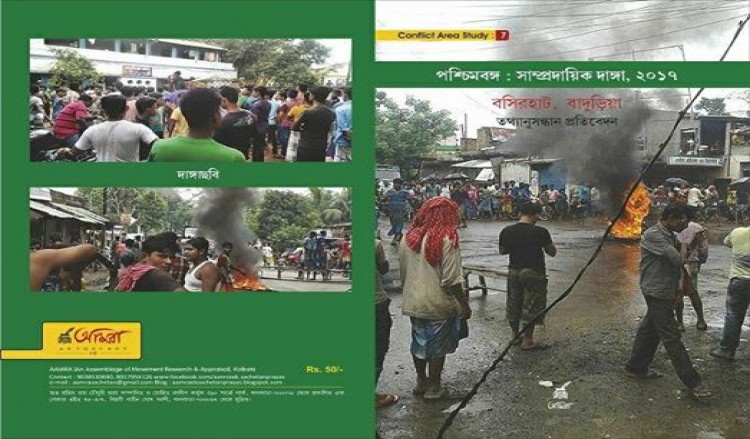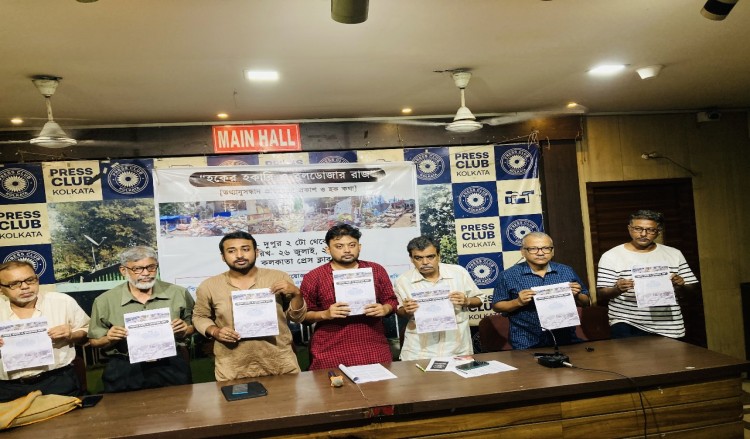
Press Release: Bulldozers vs. Livelihoods: Unmasking the Plight of West Bengal's Street Vendors: 26 July, 2024
Over the past two weeks, we have conducted a joint fact-finding across 12 municipalities and municipal corporations in West Bengal. We spoke to street vendors, common people, and leaders of street vendor unions. We also surveyed evicted vendors in several municipalities.
Press Release
Bulldozers vs. Livelihoods: Unmasking the Plight of West Bengal's Street Vendors
[Presentation of Fact-Finding Report and Press Conference]
Over the past two weeks, we have conducted a joint fact-finding across 12 municipalities and municipal corporations in West Bengal. We spoke to street vendors, common people, and leaders of street vendor unions. We also surveyed evicted vendors in several municipalities.
Today i.e. July 26, 2024, we present this preliminary report based on our overall fact-finding. We hope to publish the full report soon.
Key Findings
1. In some areas, notices were posted on walls or nearby light posts before evictions, such as in Siuri and Rampurhat.
2. In many locations, evictions occurred without any prior notice, including towns like Krishnanagar and Bolpur.
3. Loudspeaker announcements were used in all areas, threatening vendors with messages like, "Demolish your shop yourself, or the municipality will demolish it," creating a climate of fear.
4. Bulldozers or JCBs were utilized during evictions in towns such as Rampurhat, Bolpur, Burdwan, Durgapur, and English Bazar, among others.
5. A resistance movement emerged in Rampurhat on June 30 but did not last. In Siuri, street vendors successfully resisted the eviction. However, in most cities, such as Krishnanagar, there was little to no resistance, as vendors were unsure how to respond.
6. The "Bulldozer Rule" continued even after June 26, despite the Chief Minister's announcement to halt all actions for a month, with evictions being carried out and expedited with support from the ruling party.
7. There was evident support for evictions from the municipality, police, administration, and the ruling party.
8. The ruling party's street vendor union remained silent, implicitly supporting the evictions. In Rampurhat, they attempted to disrupt the joint movement. Post-eviction, they were notably absent in places like Burdwan.
9. In Bolpur, divisions arose between vendors who had previously received rehabilitation and those who had not. Similar divisions were observed in Mathabhanga and English Bazar over the allocation of new vending zones.
10. No rehabilitation was provided during the eviction process, forcing many vendors to leave their vending locations and move elsewhere.
11. There are concerns and reports that the evicted vendor spaces may be handed over to big businesses or influential individuals, such as in front of Big Bazaar in Durgapur's City Centre, where space is reportedly being leased for car parking to an influential figure.
12. Evictions are being carried out under the pretext of city beautification. For example, on BB Road in Burdwan, vendors were removed, and beautification work began immediately afterward.
13. Outside of Kolkata, vendors are often unaware of the existence of the Town Vending Committee, and have not been issued vending certificates.
Our Demands
1. Immediate cessation of all hawkers’ evictions across the state.
2. Implementation of the “Street Vendors (Protection of Livelihood and Regulation of Street Vending) Act, 2014” in letter and spirit.
3. No further evictions should occur without complying with the procedure prescribed under Section 3 of the Street Vendors Act, 2014.
4. Formation of Town Vending Committees (TVCs) in every municipality and corporation, including representatives from central trade union affiliated unions and other hawkers’ unions. The hawkers should be informed about the TVCs, and transparency must be maintained in the entire process. The TVCs must prepare a complete list of existing vendors and issue vending certificates.
5. Provision of financial compensation to all evicted vendors.
6. Rehabilitation of vendors evicted without due process at their current vending locations.
7. Evictions under the guise of city beautification or in violation of the law must cease.
8. A law must be enacted to recognize and guarantee right to work and livelihood to every citizen.
Organizers
Paschim Banga Khet Mazdoor Samiti, Right to Food and Work Campaign West Bengal, Aasongoothito Khetra Sramik Sangrami Manch, People's Union for Civil Liberties, Aamra Ek Sachetan Prayas
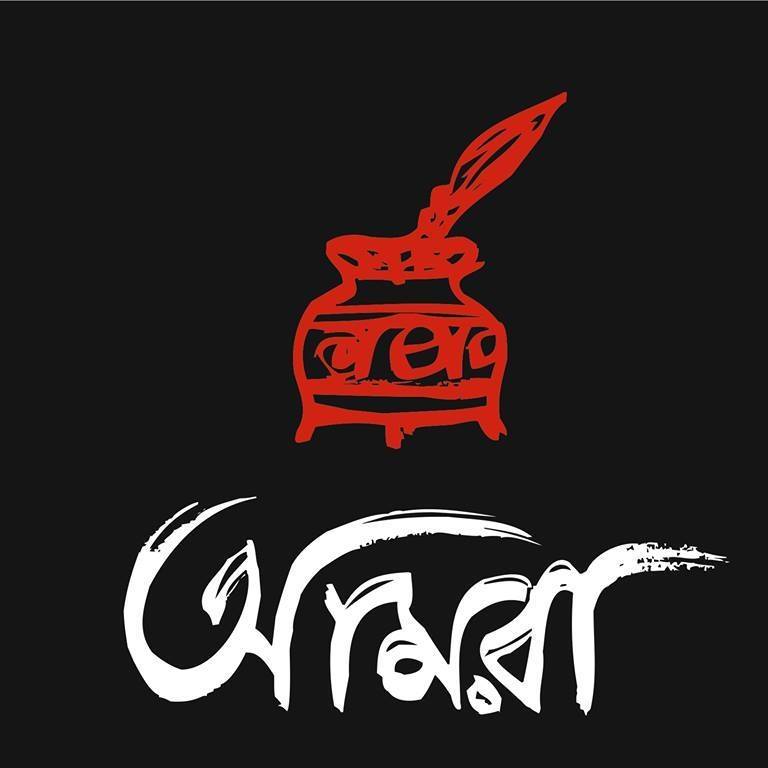
আমরা: এক সচেতন প্রয়াস
AAMRA is an amalgamation of multidisciplinary team of researchers and activists erstwhile worked as an assemblage of movement, research and activism. Popular abbreviation of AAMRA is, An Assemblage of Movement Research and Appraisal.-
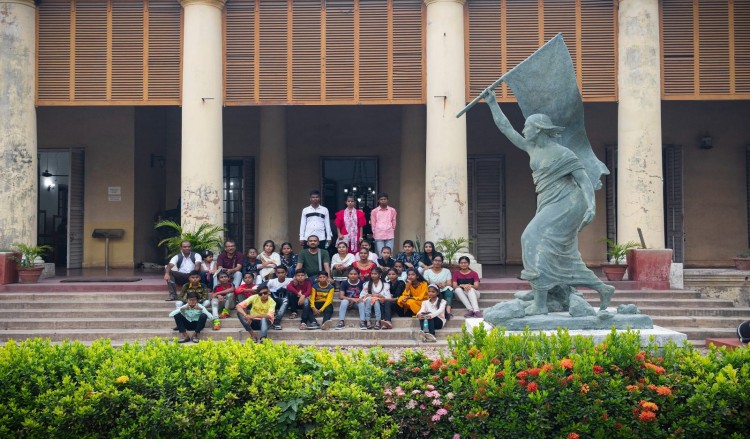
'Children of Heaven': Educational tour for the kids of UDAAN, Telenipara; 11 June, 2023
Almost all of them had been forcibly displaced from... -
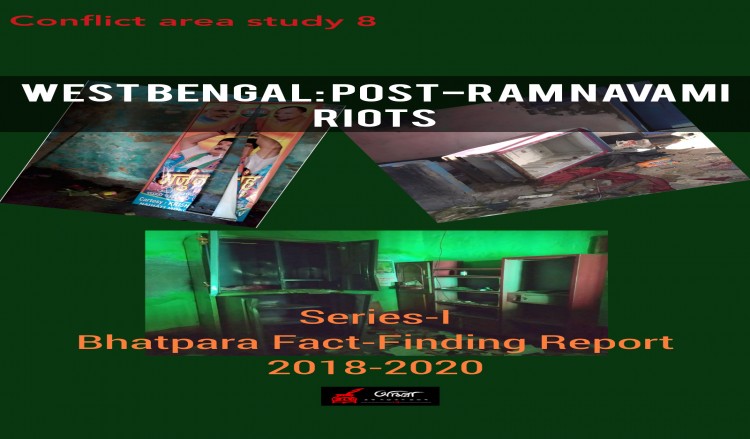
Bhatpara Fact-finding Report (2018-2020)
Bhatpara, is one of the most prominent names in the... -
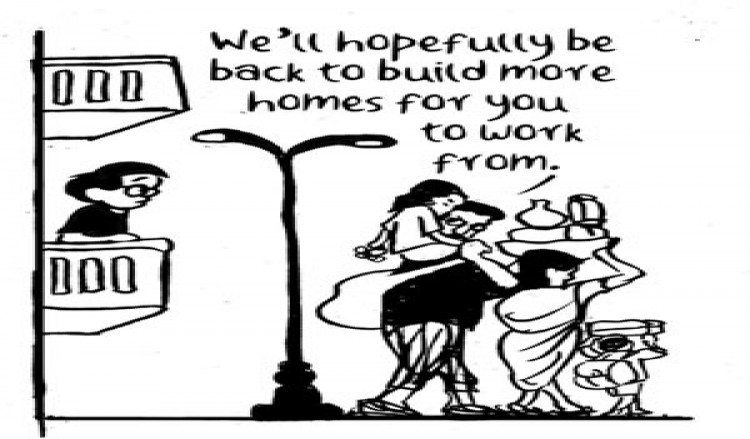
Communalising the Migrants in the middle of Covid-19 crisis in India
Covid-19 in India is not just a virus which has disrupted... -
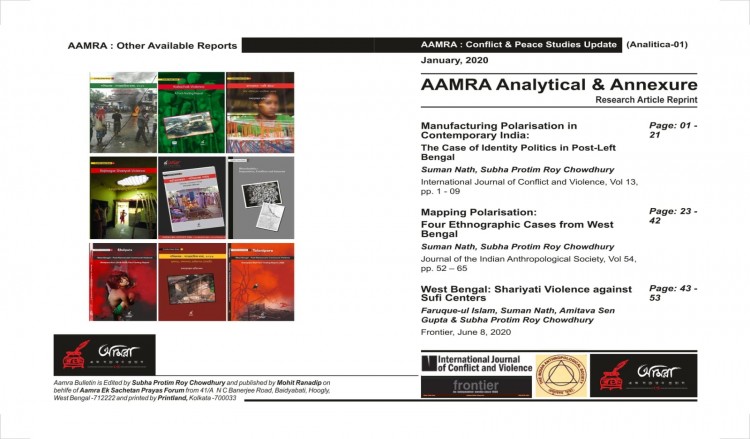
AAMRA Analytical & Annexure January 2020
This research series update represents three scholarly...

